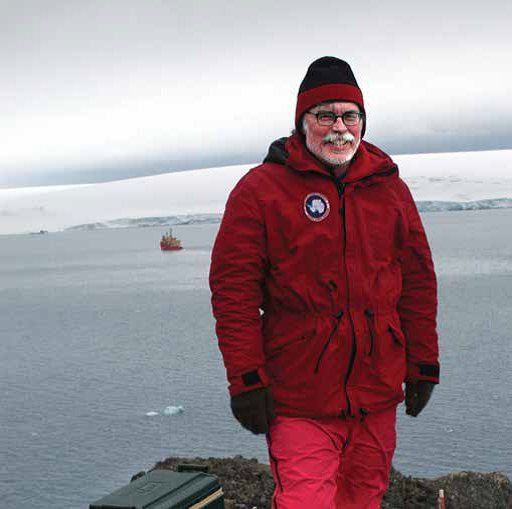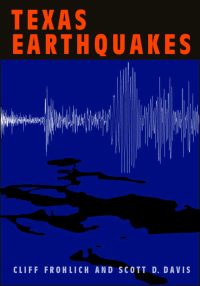Scientist Profile: Cliff Frohlich
November 20, 2017

When Cliff Frohlich joined the University of Texas Institute for Geophysics in 1978, he didn’t move to Austin, he moved to Galveston, where the institute was originally located. His specialty was on ocean bottom seismography, but from the moment he was hired, he was told to focus on science.
By Jessica Hall
“One of the wonderful things about the institute is that from the beginning they basically said, ‘you’re a research scientist, we don’t know what you should be thinking about, but figure it out. As long as some of it is earth science, do the best science that you can,’” Frohlich said. “I’ve had a career where nobody has ever prevented me from thinking about something I’m curious about and that’s something special because I’ve done a lot of things.”
And that’s exactly what he did for the past 40 years — the research that interested him. Over the years he has studied the ocean bottom, earthquake statistics, deep earthquakes, Texas earthquakes and manmade earthquakes. The latter is what Frohlich is most known for recently; his phone regularly rings as soon as an earthquake is felt in Texas. His interest in manmade or induced earthquakes began thanks to a graduate student, Scott Davis, who Frohlich began to work with when
Davis’ original advisor, who didn’t see a future in studying induced earthquakes at the university, left UT. “I said [to Davis], ‘if you’re working with me you need to work on deep earthquakes and earthquake statistics because there is obviously no future in manmade earthquakes,’ Frohlich recalls. “[Davis’] approach to my advice was he continued to work on induced earthquakes and also worked on deep earthquakes and earthquake statistics. And of course the result was that he drew me into discussions about manmade earthquakes.”
“In my career, publishing has been hugely important. I think a lot of people publish because they have to because of a grant or otherwise. I’d say that many of my papers, I didn’t have to write. My knee jerk reaction as a scientist: if I figure something out, I should write about it.”
– Cliff Frohlich
This led to Frohlich’s “hobby” on Texas-induced earthquakes. With no funding or great interest outside of his own, it was something he studied for years, leading him to become an expert when manmade earthquakes became a hot topic in recent years. When two earthquakes near Dallas occurred in 2008, he collaborated with colleagues at Southern Methodist University (SMU) to study the incidents. They turned out to be first manmade earthquakes of the new era.

“I was on the forefront of the renaissance of manmade earthquakes,” Frohlich said. “I’ve often said, ‘an expert is somebody who was publishing on something before the smart people thought it was important.’”
Growing up in a family of writers, Frohlich determined that he was the third best writer and that maybe he’d try a different route. When Sputnik went into orbit, he remembers hearing that math and science were the future for careers, so he thought he’d try that. The joke was on him though, as he estimates a large majority of his job is actually writing.
“In my career, publishing has been hugely important,” he said. “I think a lot of people publish because they have to because of a grant or otherwise. I’d say that many of my papers, I didn’t have to write. My knee jerk reaction as a scientist: if I figure something out, I should write about it.”
His advice to new researchers is to find problems that are important and do the best science that they can. “On one hand, be careful to publish as much as you can, but two, be careful to work on important problems. Take the time to do it right,” Frohlich said. “Those are kind of opposite — taking the time to do it right and working on a hard problem means that you publish less, but publishing a lot means that you’ve got to get something out, and they are both true.”
While Frohlich has spent most of his time at UTIG studying what interested him, he also served as associate director for the past 20 years. UTIG Director Terry Quinn said that he and the institute as a whole have benefited from having Frohlich at the helm for the past two decades.
“Cliff has provided wise counsel and guidance to previous directors and me,” Quinn said. “I am especially grateful to Cliff for his friendship over the years as well.”
So what are Frohlich’s plans now that he’s retiring? He’ll still be around UTIG as a researcher emeritus, and will be a visiting scientist at SMU. He also plans to spend more time with family and working on some hobbies, like woodworking, cycling and writing.
Back to the Newsletter
